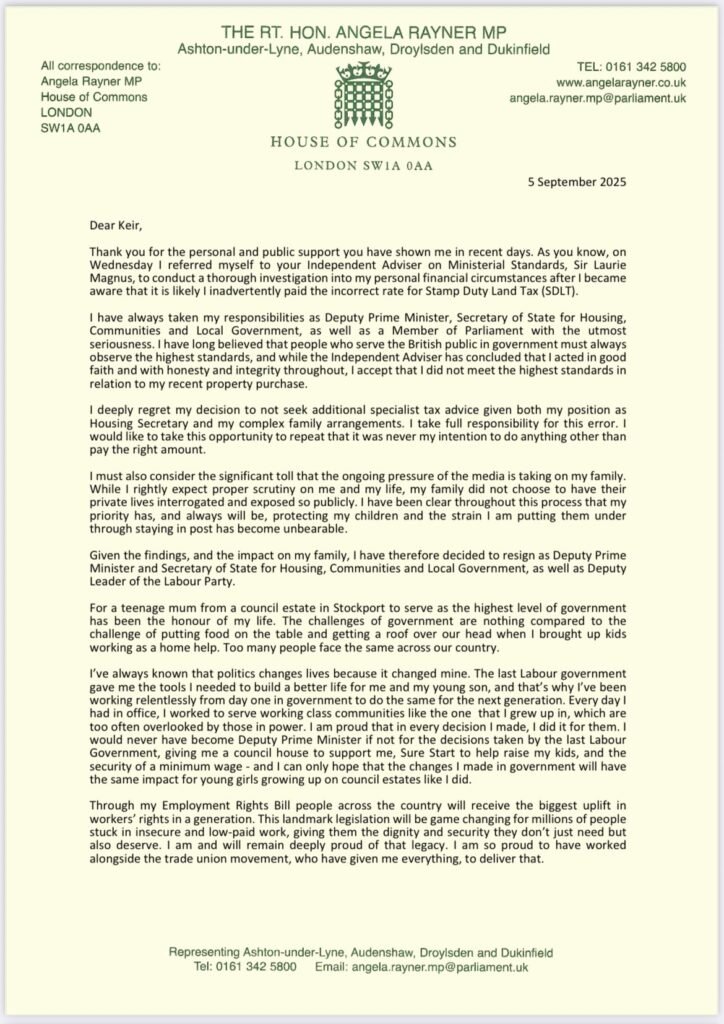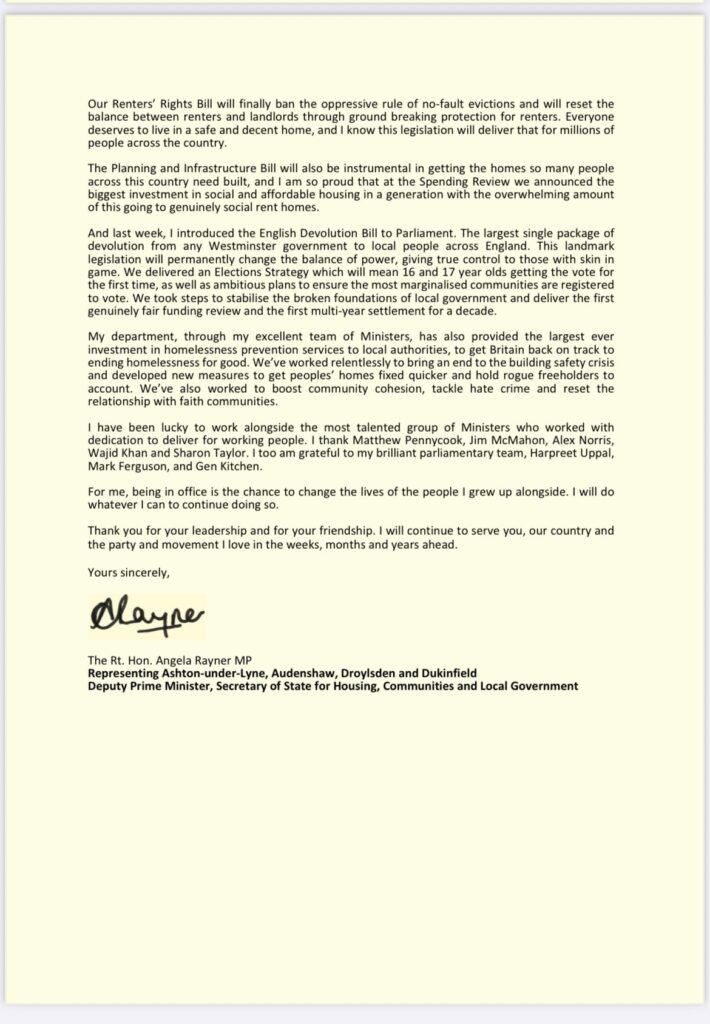Britain’s Deputy Prime Minister Angela Rayner has resigned after being found guilty of breaching the ministerial code over a property tax dispute, deepening the troubles of Prime Minister Keir Starmer’s Labour government.
Rayner admitted underpaying stamp duty on a flat purchase and had referred herself to the government’s independent ethics adviser. After review, ethics chief Laurie Magnus ruled she had failed to heed legal advice and therefore broke the ministerial code.
“I accept that I did not meet the highest standards,” Rayner wrote in her resignation letter to Starmer. She also stepped down as Housing Minister and Deputy Leader of the Labour Party.
“I deeply regret my decision to not seek additional specialist tax advice. I take full responsibility for this error.”


In his reply, Starmer said he was “very sad” to lose her from government but assured her that “you will remain a major figure in our party.”
The resignation comes as Labour struggles with a series of setbacks since its July 2024 victory, which ended 14 years of Conservative rule. The government has reversed course on welfare reforms, faced criticism over fuel benefits for the elderly, and failed to curb migrant crossings on small boats.
These missteps have fuelled the rise of Nigel Farage’s Reform UK party, which is now leading Labour in national polls.
The next general election is not expected before 2029, but discontent is growing. Could this crisis push Labour into deeper turmoil?
Rayner’s Property Dealings
Rayner disclosed this week that she underpaid on the seaside flat in Hove, southern England, worth about £800,000. Reports allege she saved around £40,000 by removing her name from the deeds of another property before making the purchase.
She explained that after divorcing in 2023, she sold her share of the family home to a trust for her son, who is registered blind with lifelong special needs. She said the move was to secure his future in a specially adapted house.
Rayner had paid a lower property surcharge, claiming the flat was her main home. But since her son is under 18, she was deemed to still have an interest in the family property, making her claim invalid.
Magnus admitted the rules carried “a considerable degree of complexity” and noted Rayner was twice advised that her lower rate claim was valid. However, he faulted her for not seeking expert advice, saying she “cannot be considered to have met the highest possible standards of proper conduct.”
From Teen Mum to Power Figure
Rayner’s departure stings beyond policy. She was one of Labour’s most recognisable figures, with a reputation as a straight-talker connecting with working-class voters.
She became a mother at 16, left school without qualifications, and rose through union activism to national politics. She often spoke of her upbringing in Stockport, where she grew up in a deprived housing estate.
Once tipped as a future Labour leader, her fall is a heavy blow to her party and to Starmer’s already fragile government. The opposition Conservatives and right-wing press had long targeted her, but her popularity among Labour’s grassroots base remains strong.
Will she bounce back, or has this marked the end of a political career once seen as unstoppable? Readers, what do you think?
Rate, Like 👍, Comment💬, share this article and Follow us on our social media handles. You can also Submit your own story to get featured and earn rewards!






